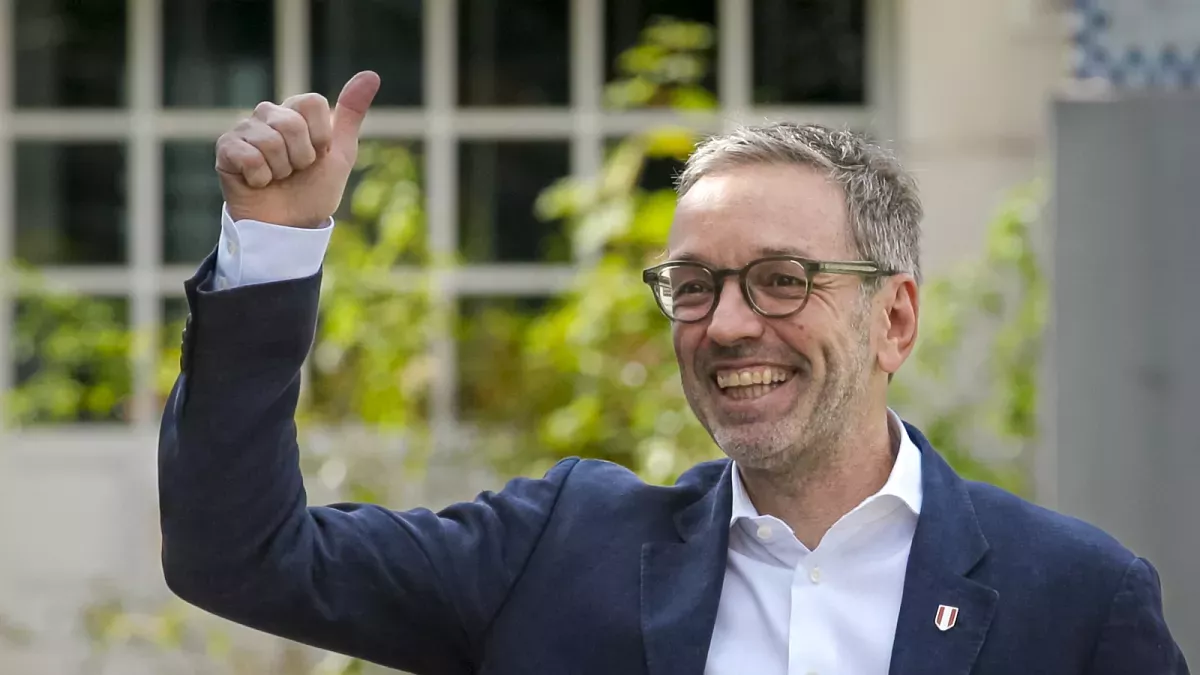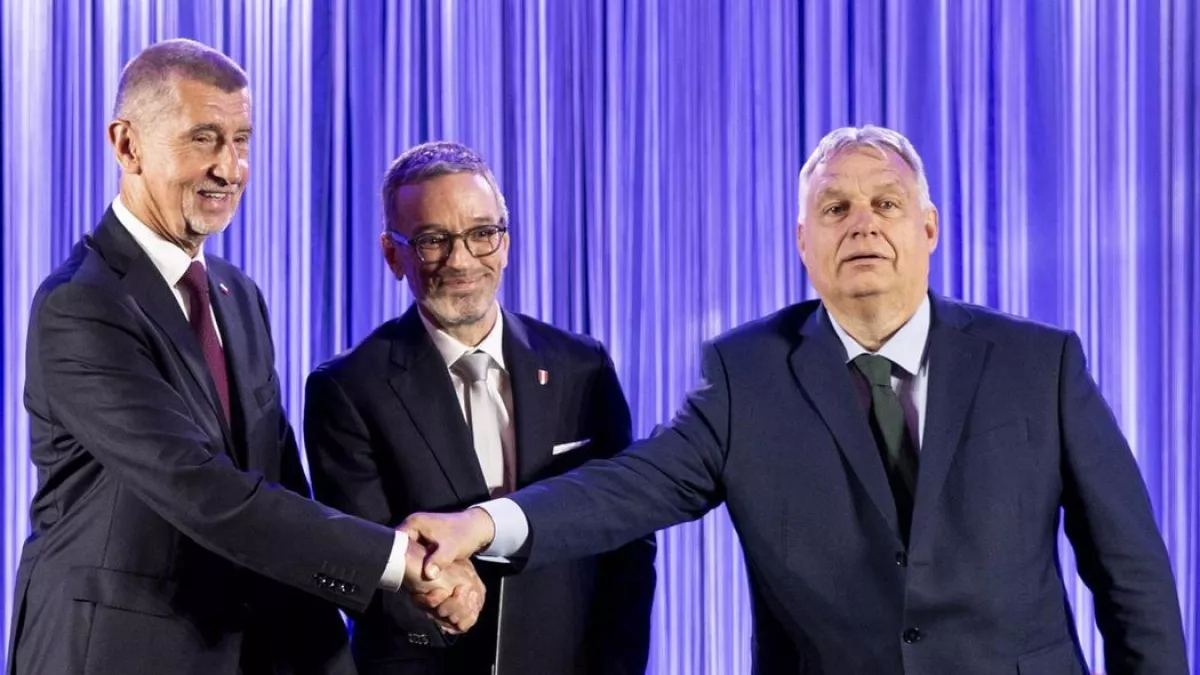Vienna Declaration: Orbán and Kickl call for reduced centralization in EU politics Challenge to Brussels’ authority
Hungarian Prime Minister Viktor Orbán is certainly making headlines. Following a two-day visit to Georgia, he travelled to Vienna, where on October 31, he signed a document with Herbert Kickl, the leader of the Freedom Party of Austria (FPÖ), known as the "Vienna Declaration."
This declaration advocates for reducing the political influence and centralization of Brussels, aiming to enhance "real democracy and parliamentarism" within European Union member states. It seeks to empower individuals and representatives elected by these nations. Additionally, the document emphasizes the need to halt all ongoing conflicts worldwide and shift toward a phase of comprehensive negotiations, envisioning Europe as a platform for dialogue.
The "Vienna Declaration" identifies "massive illegal migration" and "organized abuse of the right to asylum" as the most serious threats to Europe. It also emphasizes that "there is no other gender than male or female," highlighting the unacceptable loss of European children's "own identity." This visit is noted to be of a private nature, taking place within the context of Orbán's participation in the Peace in Europe discussion, organized by the Swiss weekly Weltwoche in collaboration with former German Chancellor Gerhard Schröder.
To recall, the Freedom Party of Austria (FPÖ), led by Kickl, has opposed military support for Ukraine from the EU and has expressed scepticism towards anti-Russian sanctions. The party has also voiced concerns about granting EU institutions excessive powers at the expense of the national interests of continental countries. The FPÖ emerged victorious in the September parliamentary elections in Austria, securing approximately 30% of the vote (58 seats out of 183).

However, just a few days ago, Austrian President Alexander Van der Bellen tasked the leader of the conservative Austrian People's Party (ÖVP), currently headed by Chancellor Karl Nehammer, with forming a coalition government. This decision arose from the refusal of all parties that entered Parliament to form a coalition with the FPÖ, preventing Kickl from achieving his goals. In this context, the president stated, "Parliamentary elections are not like a race where the party that crosses the finish line first automatically gets the opportunity to form a government. If a party intends to govern the country alone, it must overcome the fifty per cent threshold." In light of this, Kickl accused the president of violating "established and tested processes" by not allowing the party that won the election to form the government.
"This may feel like a slap in the face to many of you," emphasized the FPÖ leader, "but I promise you: the final word has not yet been spoken, so today is not the end of the story."
Orbán, Kikl, and former Czech Prime Minister Andrej Babiš, who leads the largest opposition party in the Czech Republic, ANO, created a new group in the European Parliament called Patriots for Europe in June of this year. Just a month later, it became the third largest grouping (comprising 13 parties and 84 deputies) in this structure. Notably, in an interview with the program Lancreakcio (Chain Reaction) on the Hungarian television channel HirT, the Azerbaijani ambassador to Hungary, Tahir Taghizade, described the recent anti-Azerbaijani resolution of the European Parliament as an "ill-considered and counterproductive step" that "not only jeopardizes regional peace and stability but also contradicts the EU's own interests in the South Caucasus." He expressed "gratitude to our Hungarian partners for their fair position and support both within the 'Patriots for Europe' group in the European Parliament and at the national level."

Regarding ANO, in September 2024, the party won the regional elections in 10 out of 13 electoral districts, securing over 35% of the vote. This success has fostered confidence among party members in their ability to replace the conservative government of Petr Fiala in the upcoming parliamentary elections in 2025. One of the reasons for ANO's victory, according to experts, was the effectiveness of the party's campaign slogan, "We will give you back what the Fiala government took from you," which resonated strongly against the backdrop of soaring inflation in the country.
Hungary has been presiding over the European Union since July 1, securing this six-month term on a rotational basis. Budapest's leading slogan is "Let's Make Europe Great Again," a striking reference to the famous campaign slogan of former US presidential candidate Donald Trump.
Significantly, despite earlier calls to boycott the upcoming two-day summit of the European Political Community scheduled for November 7-8 in Budapest, most European countries have opted to participate. As European Council President Charles Michel remarked, boycotting the Budapest meeting—rooted in "irritation in a number of capitals over statements or trips by the Hungarian prime minister"—is "a very bad idea." He emphasized that "I am trying to convince my friends who believe deeply in European unity and European integration not to be tempted by a false good idea." According to Michel, those wishing to express their concerns about Orbán "can do so easily in a personal meeting without refusing to travel to Hungary." However, the participation of the Baltic states and some Northern European countries in the summit remains in question.

Thus, it is evident that despite all the obstacles, Viktor Orbán continues to confidently pursue a course that aligns with the interests of his country. He holds the European lead in taking steps to prevent Europe from descending into the abyss of perpetual wars. In this context, it recalls the statement made by the Hungarian Prime Minister last year, asserting that "the vulnerability of Europe's energy security has significantly increased the importance of Azerbaijan, which has always been our friend and has now become a strategic partner for all of Europe."








